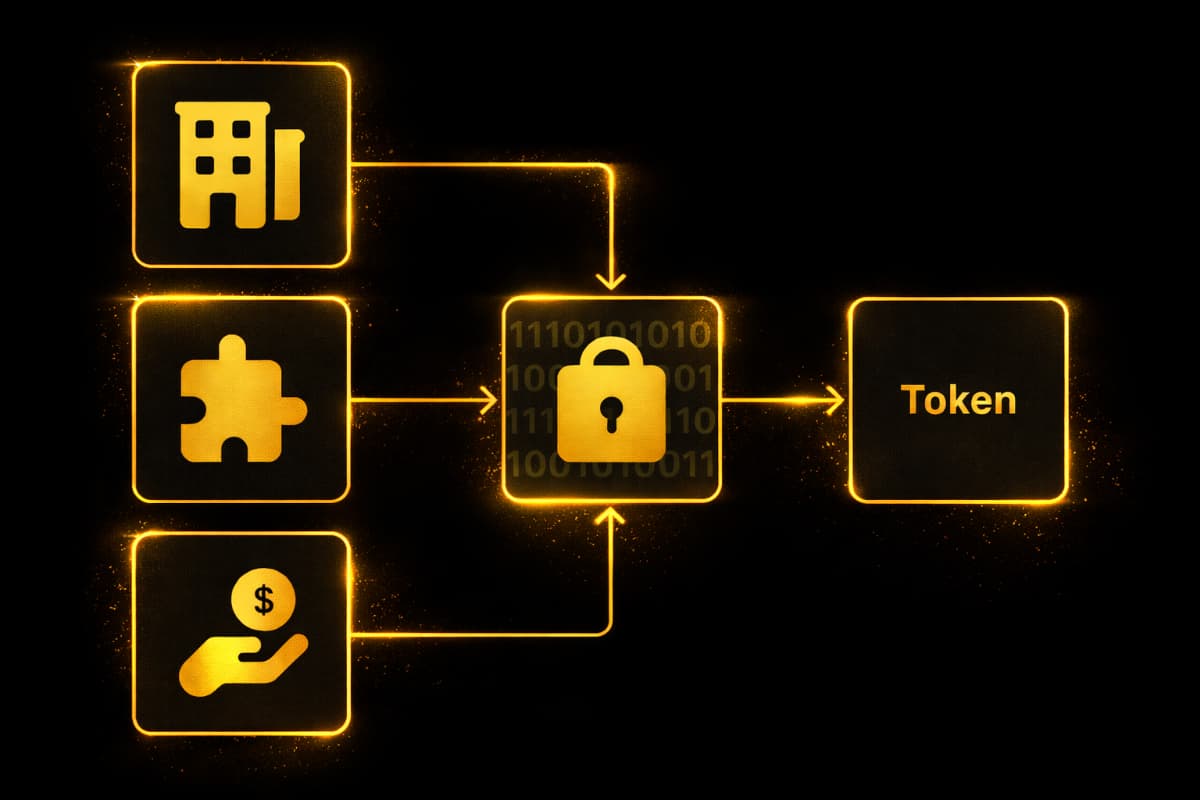What is a Tokenised Stock?
Robinhood’s Recent Tokenised Updates
Advantages of Tokenised Stocks
Risks of Tokenising Stocks
FAQs

Robinhood recently made headlines for announcing they would be allowing tokenised offerings for yet private companies such as OpenAI and SpaceX. However, OpenAI issued public statements denying any involvement and advising investors to exercise caution. Robinhood did not simply stop here. They launched tokenised versions of more than 200+ US S&P 500 company stocks in Europe. So investors in Europe can now buy tokenised AAPL and TSLA shares and even trade them 24/5, meaning these tokenised stocks can be traded outside of US Stock Exchange trading hours!
A Tokenised Stock is a representation of digital company shares that exist on a public blockchain instead of a traditional stock exchange and mirrors the price of the original stock. There are 3 ways to tokenise stocks
Robinhood is launching 200+ tokenised US stocks and ETFs. These will also include private companies such as OpenAI and SpaceX. Robinhood wrote a letter to the SEC on their beliefs on tokenisation of RWAs and their strategy on the same.
Robinhood chose the Arbitrum blockchain (low gas fees + popular L2) for issuing tokenised equity.
24x7 Trading
Unlike traditional markets restricted by opening and closing hours, tokenised stocks can be traded around the clock. This offers flexibility to investors across time zones and allows them to react instantly to global news and events.
Fractional Ownership
Tokenisation makes it possible to buy a fraction of a share rather than an entire unit. This lowers the entry barrier for high-priced stocks and opens the door for more inclusive participation. For example, 0.1 TSLA can be bought for 34$ instead of 340$ for 1 TSLA
DeFi
Since tokenised stocks live on a blockchain, they can be integrated into DeFi ecosystems. Investors can use them as collateral for loans, stake them in liquidity pools, or trade them on decentralised exchanges.
Global Accessibility
Anyone with an internet connection and a compatible wallet can access tokenised stocks, bypassing many of the geographic and regulatory barriers that limit traditional stock investing.
While the concept looks gives wings to their regular digital counterparts, tokenised stocks come with their own set of risks
Liquidity Risk
Since the concept is still in its early stages, the trading volume for tokenised stocks is low, making it difficult to buy or sell large quantities without impacting the price.
Custodian Failure Risk
In wrapped issuance models, the custodian holds the underlying assets. Any operational failure, insolvency, or fraud at the custodian level can jeopardise the value of the tokenised stock.
Tokenising Stocks and other RWAs such as US Treasury Bills and Stablecoins helps the US Dollar a lot. Outside the USA these assets are mostly bought using USDC or USDT, boosting demand for the dollar globally. This way the US is able to export its dollar and hence its stance in crypto is quite pro unlike India, which does not have much to win.
India Crypto Research operates independently. The information presented herein is intended solely for educational and informational purposes and should not be construed as financial advice. Before making any financial decisions, it's essential to undertake your own thorough research and analysis. If you're uncertain about any financial matters, we strongly recommend seeking guidance from an impartial financial advisor.